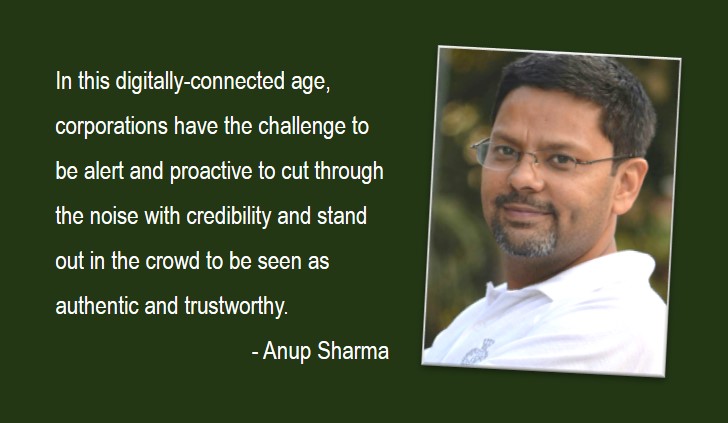In an open letter to lenders recently, Subhash Chandra, Chairman, Zee and Essel Group, had pointed out his mistakes that led the organisation into financial turmoil and subject to investigations. The (emotional) outpouring and apology from the head of the Zee group admitting that he has “not lived up to ..expectations” brings back to memory, last the time when Facebook chairman and CEO Mark Zuckerberg apologised. It was April 2018 and the time of hearings related to data privacy. “We didn’t take a broad enough view of our responsibility, and that was a big mistake. It was my mistake, and I’m sorry,” Zuckerberg had said.
Coming at a time where we are seeing some very high-profile financial scams and irregularities – ICICI/Videocon, IL&FS, Sterling Biotech and now DHFC (Deewan Housing) and alleged defaulters like Vijay Mallaya, Nirav Modi, Mehul Choksi turning rogue, the apology letter from the Zee Group Chairman issue is going to be under lens and so is the reputation of the organisation.
A January 2019 study titled, Financial Services Reputation Index (FSRI) India Report’ by Pitchfork Partners, and MHP, an international communication consultancy highlights that an overwhelming majority in India showed trust in the banking and financial services sector while flagging off data security, honesty and transparency as the top three stakeholders concerns. Read the complete report here.
The key question of Zee Chairman’s apology is the timing – whether its proactive or reactive – and the intent. Apologies become empty words unless they are accompanied by some clear course correction points. While Subhash Chandra in his letter assured that he is not running away from the core issue and will do his best to repay each and every person, he also said that he cannot put a timeline and “best time for the same, however, is difficult to be mentioned at this stage.”
In the digitally-connected age, corporations have the challenge to be alert and proactive to cut through the noise with credibility and stand out in the crowd to be seen as authentic and trustworthy. According to the 2018 Edelman Trust Barometer (survey covering more than 33,000 individuals across 28 countries) while the credibility of CEOs have increased from 7% to 44%, with 64% of survey respondents indicating that CEOs should take the lead on change, the CEOs are still ranked the fourth least credible spokesperson. Read the complete survey results here.
The stakeholders today want to see a proactive role and a broader view of responsibility from the leadership team taking onus and also bringing in certainty, reassurance and confidence. Without being emotional or blaming others (negative forces) the leadership team need to highlight not only what they are doing to find the cause of the issue but also the immediate steps being taken to fix it with checks and balances.
Every organisation, no matter how large or small, ultimately depends on its reputation for survival and success. The proverb silence is golden is not necessary true in today’s hyper-connected world where digital and social media can make or break reputation within seconds. It’s about timing – the agility and response time – so you are seen as a transparent organisation that is ready to take on whatever comes your way, instantly.
In the recent past, we have witnessed some of the most iconic consumer brands like Nestle’s Maggi, Johnson & Johnson, IndiGo Airlines, Zomato coming under major attack for their late response, which may have been better managed by being proactive. The assurances to stakeholders could have been better if credible and timely content was shared by these brands to reassure their large number of stakeholders about product quality and safety.
Interestingly, Public Relations firm Weber Shandwick’s recent CEO Activism Research found a positive impact on reputation when CEOs take a stand on issues, but only a quarter think CEOs are ready to respond when they are under pressure to speak out.
Also the reputation built over the years matter to overcome potential crisis, like the Tata Group which has always been value-driven providing a long-term stakeholder value creation based on leadership with trust. During the years, the group faced a lot of communication challenges but has managed to overcome most because of strong reputation built over the long-run and timely communication from the leadership team.
The views expressed here are that of the author and do not necessarily reflect that of Reputation Today.



You are so true about credibility crisis. Anup , you have elaborated the issue in wonderful way. I 100% agree good leadership can manage to hold good trust and good trust manages Good reputation. When we talk about trust, reputation and credibility only name strikes in my mind is Mr. Ratan Tata.